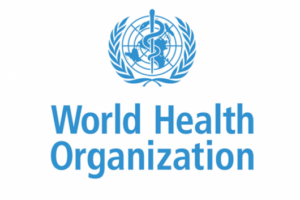By Muhammad Auwal
The World Health Organisation (WHO) and UN-Water have advised poor countries to urgently increase investment to strengthen drinking-water and sanitation systems for improved public health.
Information in WHO official website states that the advice came as the international water sector meets in Stockholm, Sweden, for its annual conference during World Water Week.
It is triggered by a report by WHO for UN-Water, which reveals that weak government systems, and lack of human resources and funds jeopardise delivery of water and sanitation services in the world’s poorest countries.
It is said to also undermine efforts to ensure health for all.
 WHO Director-General, Dr Tedros Adhanom Ghebreyesus, said that the situation threatens progress in public health.
WHO Director-General, Dr Tedros Adhanom Ghebreyesus, said that the situation threatens progress in public health.
“Too many people lack access to reliable and safe drinking-water, toilets and hand-washing facilities, putting them at risk of deadly infections and threatening progress in public health.
“Water and sanitation systems do not just improve health and save lives, they are a critical part of building more stable, secure and prosperous societies.
“We call on all countries that lack essential water and sanitation infrastructure to allocate funds and human resources to build and maintain it,” he said.
It was reported that the UN-Water Global Assessment and Analysis of Sanitation and Drinking-Water 2019 surveyed 115 countries and territories, representing 4.5 billion people.
It showed that, in majority of countries, the implementation of water, sanitation and hygiene policies and plans are constrained by inadequate human and financial resources.
One territory and 19 countries reported a funding gap of more than 60 per cent between identified needs and available funding.
Less than 15 per cent of countries have the financial or human resources needed to implement their plans.
The Chairperson of the UN-Water, and President of the International Fund for Agricultural Development, Mr Gilbert Houngbo suggested that water, sanitation and hygiene were crucial for a healthy society.
“If we are to create a healthier, more equitable and stable society, then strengthening the systems to reach those currently living without safe and affordable water, sanitation and hygiene services must be a top priority.
“While we need to ensure that there is sufficient funding to tackle these critical challenges, it is equally important to continue reinforcing national delivery systems,” he advised.
The report, however, revealed that some countries are taking positive steps towards achieving Sustainable Development Goal six on water and sanitation.
According to Mr David Molefha, Principal Water Engineer at the Ministry of Land Management, Water and Sanitation Services in Botswana, concrete actions are being taken to ameliorate the situation in the country.
“The Sustainable Development Goals have inspired us to take concrete actions at the national level to increase access to sanitation.
“We have developed a sanitation roadmap and are working to eliminate open defecation.
“With these actions, we are working to improve peoples’ lives,” he said.
WHO says that about half of the countries surveyed have now set drinking-water targets that aim for universal coverage at levels higher than basic services by year 2030.




